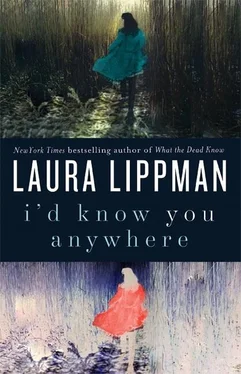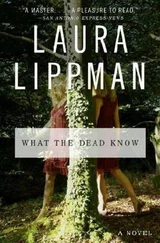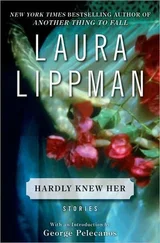In the wake of Holly’s death, Trudy became almost too visible, recognized—and therefore pitied—everywhere she went. In Alexandria, she settled into anonymity and was grateful for it. Granted, she couldn’t really take anyone new into her life because that would involve telling the story, which was unbearable. Better to have a child who was, in fact, the Unabomber’s victim, because that one word was all the shorthand required. Walter Bowman and his crimes fell into some muddy nether region. He wasn’t nickname famous, as Terry once observed, not like some serial killers. People in Virginia tended to remember him, but not by name. Once, after the move to Alexandria, Trudy had tried to speak of her life with a neighbor, only to have the woman blurt out: “Oh my God, you were the mother of that beautiful little blond girl.” Terry said she should take solace in Holly being remembered that way, but that wasn’t being remembered. “Beautiful little blond girl” could be one of many. In that moment, Trudy understood the world at large had lost track of her daughter. It was the crime that people remembered, not the victim. Walter’s execution would be the last chance to remind the world of a singular life lost.
Lives, Trudy reminded herself. There was the other girl, Maude, possibly more. When she was at her lowest, Terry tried to cheer her up by saying that there were women who didn’t know what had happened to their daughters, who had endured even more than she had. Was it wrong that Trudy didn’t really give a shit?
She usually allowed herself to walk past the house four times, on a loop of her design. She felt that was credible, that someone might walk that way for exercise. She walked more quickly here than she did in Alexandria, feeling much more purposeful. But she never managed to see anyone coming and going from the house. Perhaps her note had scared them away, sent them into hiding? But, no, the house looked lived in. Over lived in.
Today, on her third pass, she decided to do something she had not yet dared. She walked right up to the door and knocked. There was a television on somewhere in the house, clearly someone was home, but it seemed an eternity before footsteps creaked toward the door. She was being inspected through the fish-eye.
“I hear you in there,” she said. “I know you’re there. Now open up and talk to me, Elizabeth Lerner.”
The door opened, but just a crack, and the eyes that met Trudy’s were considerably lower than she had expected, far beneath hers. Hazel eyes, in a tanned face. A girl’s face.
“I’m not sure you have the right house. My mom’s maiden name is Lerner, but she always goes by Eliza.”
Oh no, not always.
“Of course,” Trudy said. “But someone’s old teacher tends to be formal.”
“You were my mom’s teacher?”
“Yes, at”—amazing, the things that the mind could grab under pressure, the details about Elizabeth Lerner that were always there—“at Catonsville Middle School. She was one of my best students.”
The girl frowned, seemingly sullen at being told of her mother’s achievements.
“That is, she scored quite well on tests. She wasn’t always the most meticulous on her written work, or in keeping deadlines.”
“Are you sure you don’t mean my Aunt Vonnie? She’s the smart one. My mom says she just got by.”
Oh, didn’t she. “Your mother was always modest. Is she home? May I come in?”
“She’s—” The girl was struggling. Her mother wasn’t home, but she wasn’t supposed to reveal that information. She probably wasn’t supposed to answer the door to strangers. “She had to go to my school, but she’ll be right back. Right back,” she added.
A dog poked its nose through the door opening and gave a tentative growl. Trudy offered her closed fist, allowed the dog to sniff it.
“Shush, Reba.”
“Is that your dog?”
“Not really. I would have chosen a better one.”
“May I come in and wait for your mother? I don’t get up here very often and I’d hate to miss her.”
“I don’t know…”
“You can call her if you like, tell her my name. Tell her Mrs. Tackett has stopped by.”
“Oh, Mrs. Tackett. The one who left the note. I thought Mom said she went to school with your daughter.”
That hurt, but Trudy didn’t care, for the door was now open wide to her.
STRANGELY, OUT OF ALLthe things that should have bothered her, it was the logistics of the call from school that had floored Eliza, at least in the initial moments of trying to take in the information. Iso had been caught stealing and was suspended from school, effective immediately. This meant Eliza had to come to school to pick her up, then return for a meeting at two, but that would make her late to pick up Albie for their walk home, so she had to arrange a playdate for Albie, a situation made more difficult by the fact that she didn’t really know the mothers of Albie’s friends. Desperate, she had done something she had never dreamed she would do—withdrew Albie early and taken him to the Barnes & Noble on Rockville Pike, then parked him in the children’s section with strict instructions to sit there, read a book, and speak to no one. If asked where his mother was, he was to insist she was in the store. She gave him Iso’s cell phone just in case. Lord knows, it would be a long time before Iso was allowed to use her phone, if ever.
Then it was back to North Bethesda Middle, where she had to sit through the humiliating recital of Iso’s transgressions. Stealing, lying—
“About the lying,” she put in, wishing Peter could have gotten away for this meeting, but it had been impossible. (“Even if I could get away from work today, I’d never get there in time,” he had told Eliza.) “It’s my understanding that she lied when asked if she had stolen something.”
“Yes, but that hardly mitigates her behavior,” said Roxanne Stoddard, magnificent today in a bouclé purple suit.
“No, but—she lied to cover her ass.” She flushed for speaking so crudely in front of the exemplary principal. “Sorry. It’s just that I understand why she lied, although I don’t condone it. We’ve always told our children that lying is the least acceptable offense.” In her disordered, rattled state, she went so far as to think— And she didn’t lie to me, her mother. She lied to you! As if that mattered. “Still, it’s harder for me to understand why she’s stealing something she already owns—an iPhone. She has one. Well, not an iPhone, but a perfectly good cell phone.”
“Mrs. Benedict—based on what teachers have told me, Iso is a very angry, unhappy girl.”
“Well, she’s moody. She’s an adolescent.”
“Yes,” the principal said dryly. “I have some experience with adolescents.”
Eliza blushed, although she didn’t believe that the principal’s life among hundreds of young teens gave her any moral authority in this discussion. She may have more quantitative experience, but no one could know more about her children than Eliza did.
“I want to show you an assignment that Iso wrote for English class recently. The teacher asked students to recast a real-life experience as the plot of a well-known television show.”
Eliza decided this was probably not the best time to roll her eyes, but really? A television show? Peter would be apoplectic when she told him, probably start talking about private school again.
“This is Iso’s story.”
The principal passed three sheafs of paper across her desk to Eliza. On the first page, in Iso’s almost too-neat handwriting, was the title: Everyone Loves Albie.
Iso: Let’s get a dog.
Читать дальше












